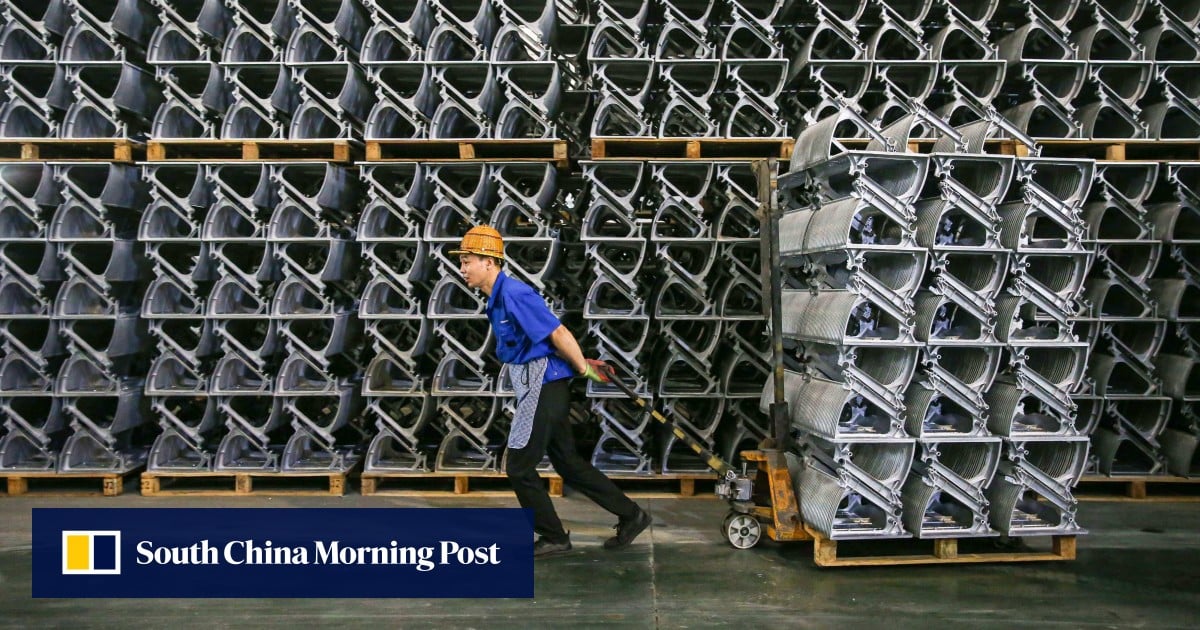Bussiness
‘An all-time low’: EU Chamber of Commerce in China finds sentiment has tanked

Another 13 per cent, the highest share ever recorded in the survey, said they were not planning to further invest in China.
Despite three-quarters of respondents saying they planned to reinvest some of their 2023 profits in China, more than a third said they would reinvest less than their historical average.
Companies are beginning to realise that some pressures seen in the global market … have really taken on a more permanent danger
China is “no longer the obvious choice for all”, said the annual report, which cited responses from 529 member companies in January and February.
“What is happening now is that companies are beginning to realise that some pressures seen in the global market, as well as the competition with us, have really taken on a more permanent danger,” Jens Eskelund, the chamber president, was quoted as saying in the report. “That is something that is beginning to impact investments and decisions and the way they think about development of the local markets.”
Concerns about China and the global economic slowdown; US-China tensions; risks from geopolitical conflicts; and competition with the Chinese private sector were the main challenges flagged by companies in the survey.
“Sentiment about the business environment fell to an all-time low, as regulatory obstacles remained largely unresolved in 2023,” the report said.
More than two-thirds said that doing business in China had become more difficult, marking the highest proportion on record.
Geopolitical tensions, stricter data regulation and an overemphasis on self-reliance and national security have particularly dealt a heavy blow to foreign companies in information technology, while market restrictions and stalled improvements in intellectual property protection have impaired the investment prospects of pharmaceutical companies.
The survey also showed a rise, albeit mildly, in investments moving out of China or decisions to shift to other countries.
The Association of Southeast Asian Nations has been the main beneficiary of China’s fading appeal as a destination for foreign investment, with 21 per cent of respondents having already moved – or were considering moving – investments originally planned for China.
The region was followed by Europe, India and North America.
The shift was due to the need to mitigate the impact of decoupling between China and third countries, to seize the opportunities in other markets, and because of the uncertain business environment in the world’s second-largest economy, the report said.
“As investment decisions are made in cycles and are not taken lightly, reversing them will not be possible overnight,” the report said.
Overcapacity has emerged as one of the challenges for European companies in China, and was mainly cited by companies in civil engineering and construction, automotive, machinery and petrochemical sectors.
“If the interconnected issues of weak demand and overcapacity remain unaddressed, competitive pressure is likely to intensify further, which would be in line with the expectations of more than 60 per cent of respondents,” it said.
More than one-third of respondents reported increased revenue, but that still came in at the lowest level on record, the report said.
European businesses are revising their expectations of the Chinese market
Less than one-third of the firms reported higher margins in China than their company’s global average, hitting the lowest proportion in eight years.
“European businesses are revising their expectations of the Chinese market, and the strategies they are planning to adopt to deal with the projected economic slowdown – such as cost-cutting – have the potential to add to China’s economic challenges, setting a negative cycle in motion,” it warned.
It said that more than half of the firms were planning to cut costs, and more than a quarter of those had planned to do so by cutting headcount, while others intended to trim marketing budgets or reduce office space.
Washington’s new and forthcoming export-control policies on advanced computing and semiconductor manufacturing could also impact a large proportion of EU companies operating in China, with nearly a quarter of the polled companies expecting their operations to be affected.
Politicised consumer demands have also added to the challenges, as some businesses said they had received conflicting requests from Chinese and Western customers.
“Over a third (37 per cent) are being pressured to produce goods for the China market with no US-made components; and a quarter are being pushed to produce goods for the European or other markets with no China-made components,” it said.








